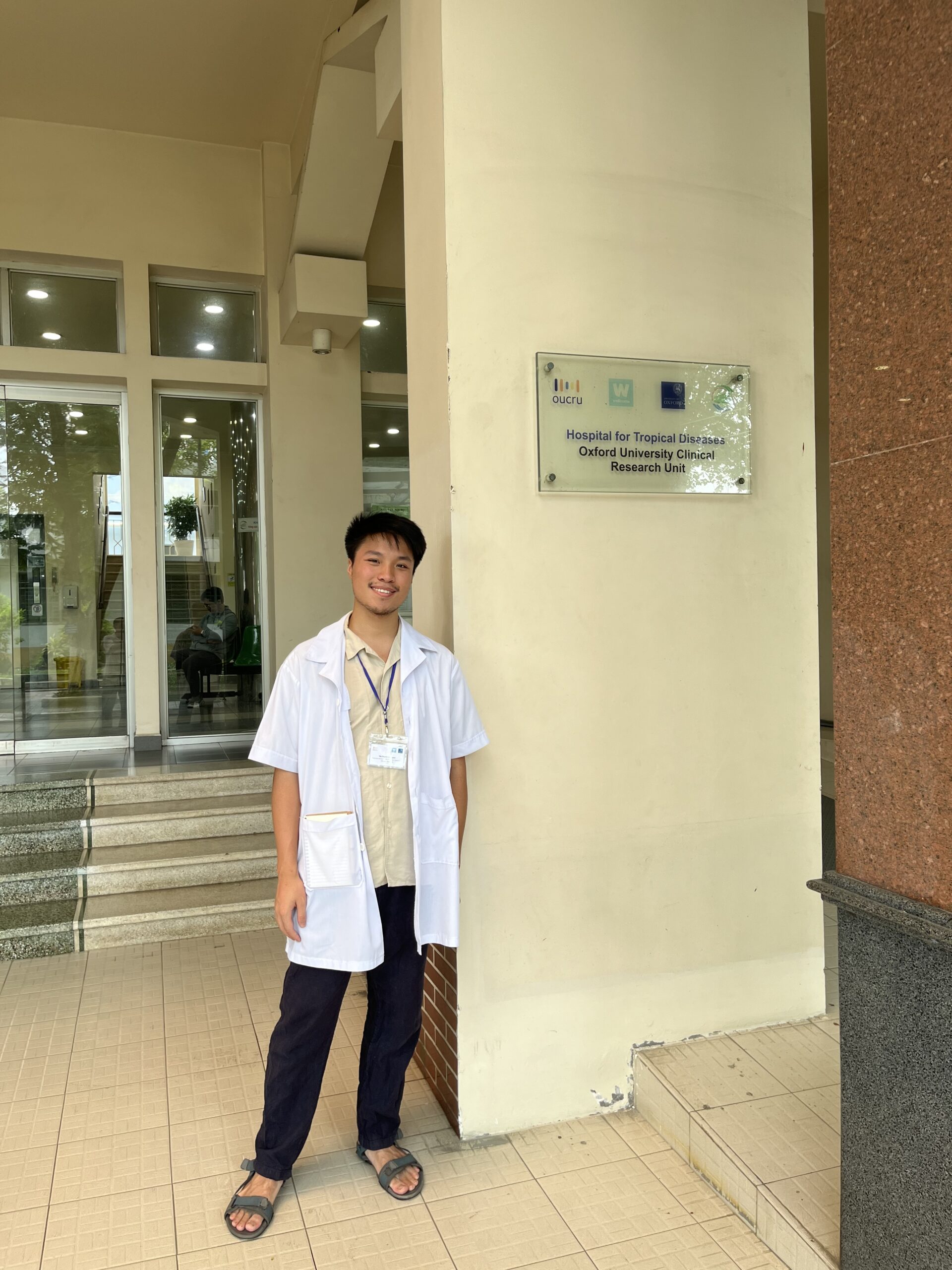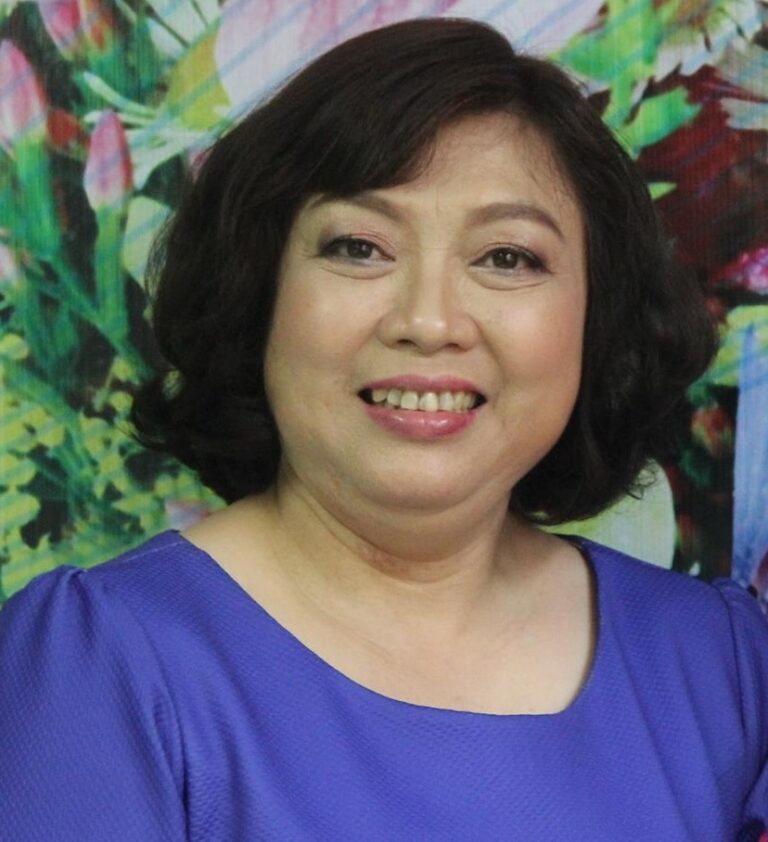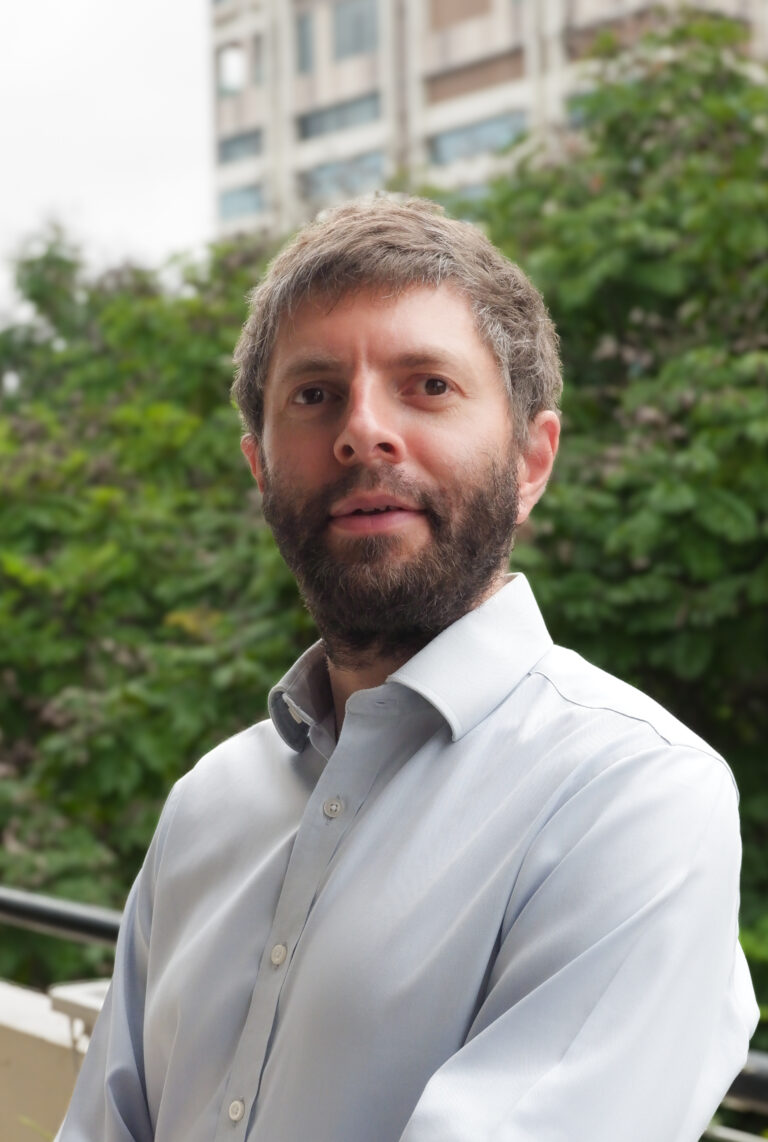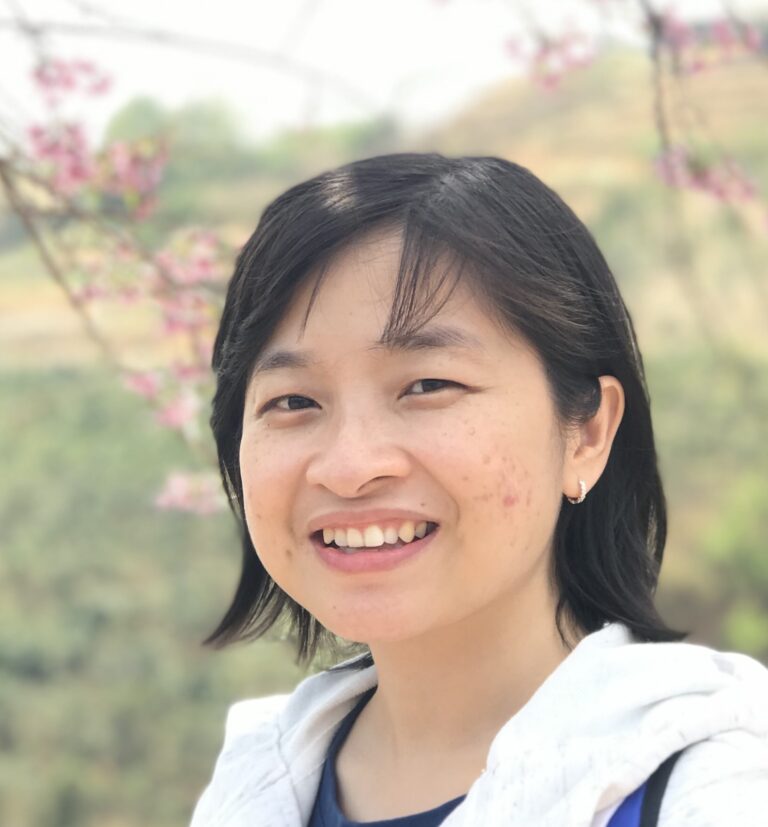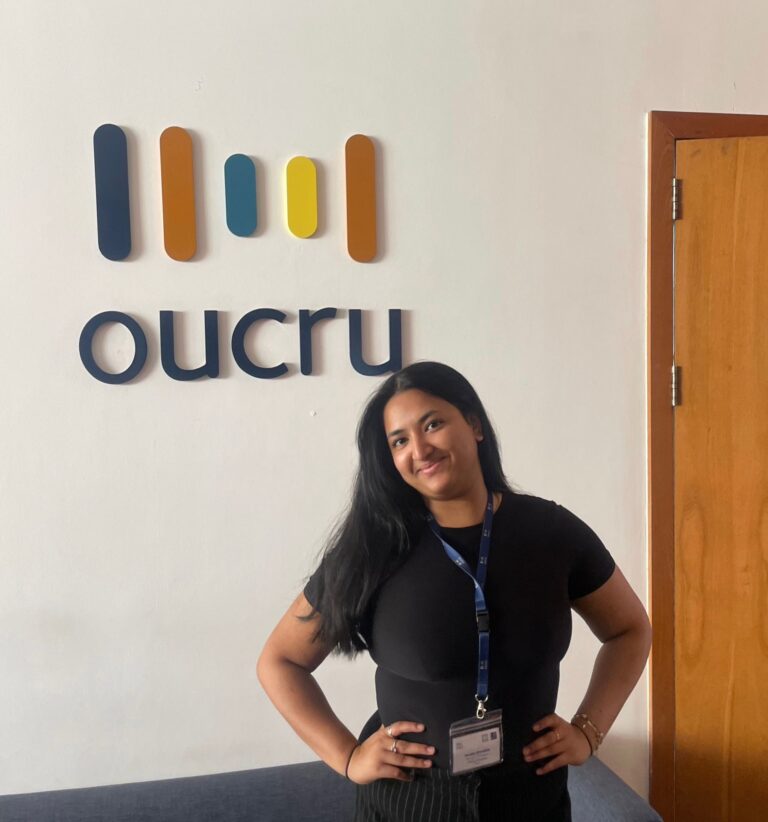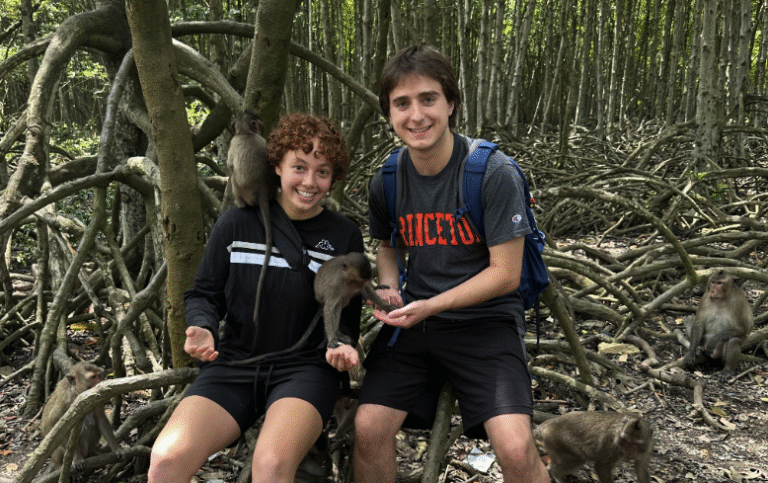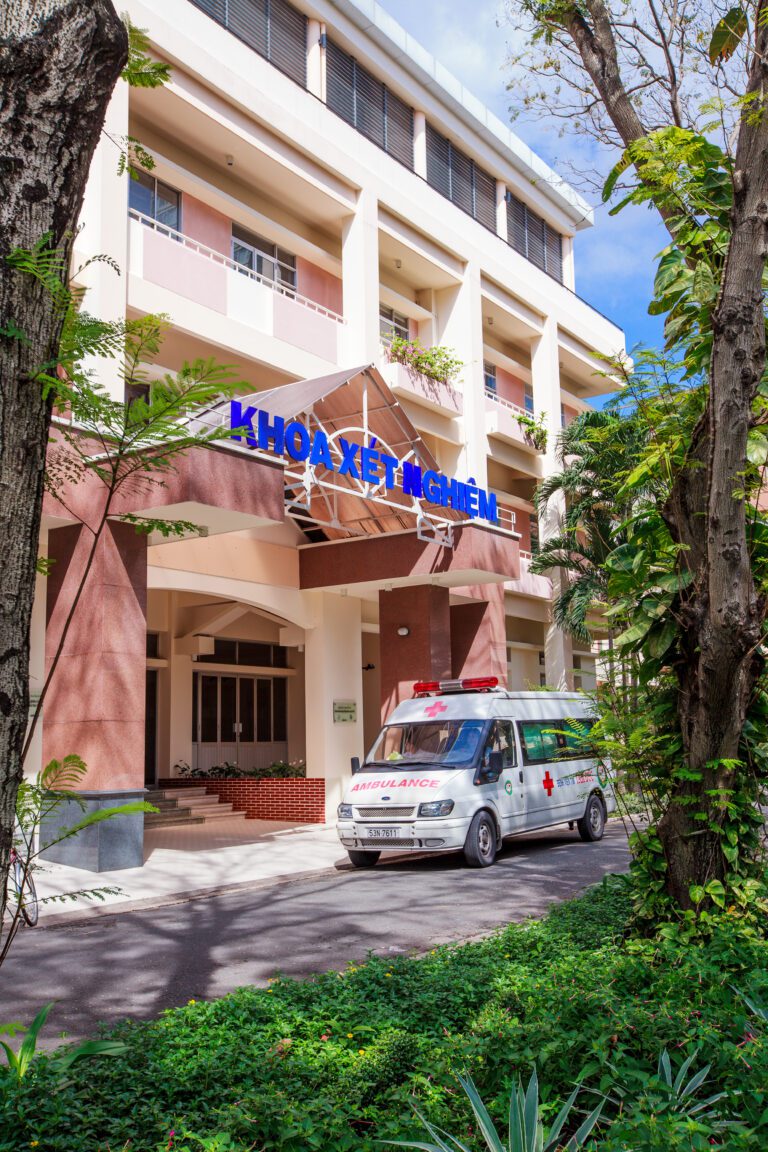Hi, I´m Du Hanh Nguyen, a fourth-year medical student from Germany. I spent one month at OUCRU for my clinical elective, and the experience far exceeded my expectations. From the very first day, I felt welcomed by a supportive team and was immersed in an inspiring learning environment. Here’s a glimpse into my time at OUCRU and what made it such a memorable and enriching experience.
What brought me to OUCRU
In Germany, medical students are required to complete four one-month clinical electives before their final year. For my last elective, I decided to look for opportunities in Vietnam — partly to visit my family, but also to learn more about tropical medicine and public health. These subjects receive relatively little attention in the German medical curriculum, so I wanted to gain deeper insights into them in a setting where they are highly relevant.
After a quick Google search for clinical elective opportunities in tropical medicine in Saigon (Ho-Chi-Minh City), I came across OUCRU and the Hospital for Tropical Diseases. While hospitals such as Cho Ray or the University Medical Center in Saigon were more popular among medical students, OUCRU stood out to me because of its strong focus on tropical and infectious diseases, its on-site clinical research, and its active engagement in public health initiatives.
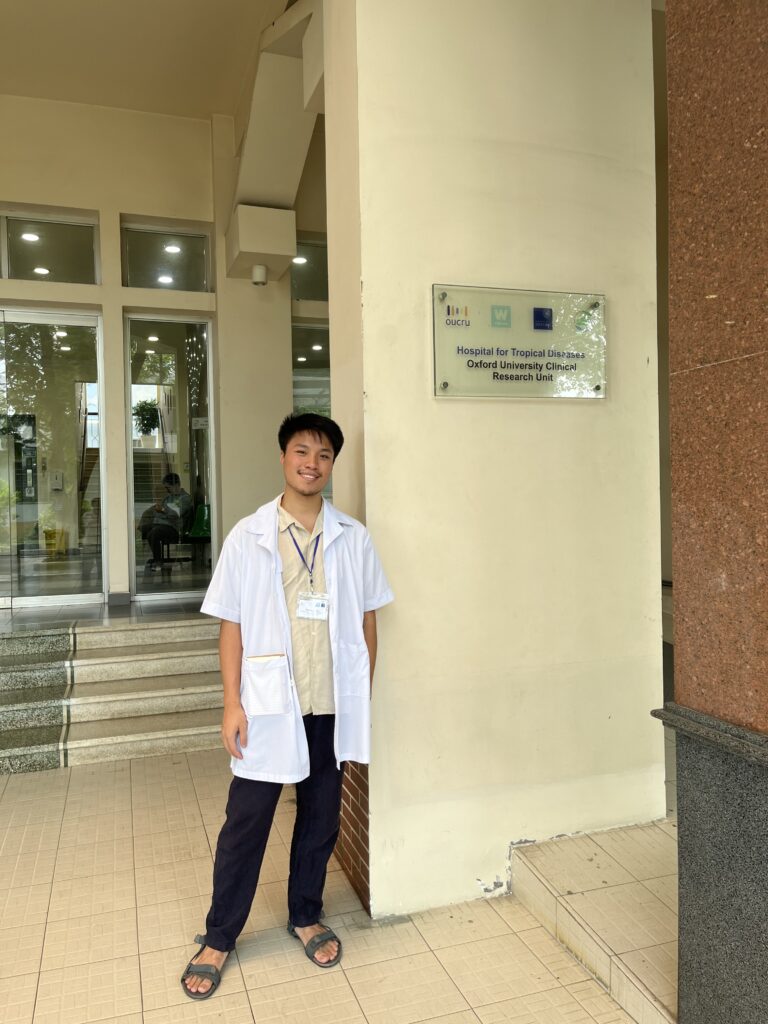
In the ICU: Between pathogens and patients
I had a very supportive instructing physician and was free to choose my rotations. During my time in the Central Nervous System (CNS) Infection Intensive Care Unit (ICU) with Dr. Joseph Donovan (Joe), I learned a lot about the clinical management of meningitis. The spectrum of pathogens in Vietnam differs significantly from what I was used to in Germany, and I encountered many cases that would be extremely rare in Europe. In the wards, I often found myself overwhelmed by intricate cases, complex presentations, and the fast-paced clinical environment. Luckily, Joe and his colleagues were always there to guide me through each case, explain the reasoning behind diagnostic and treatment decisions, and encourage me to think critically about differential diagnoses. Their openness to teaching and discussion made the learning experience both challenging and deeply rewarding.
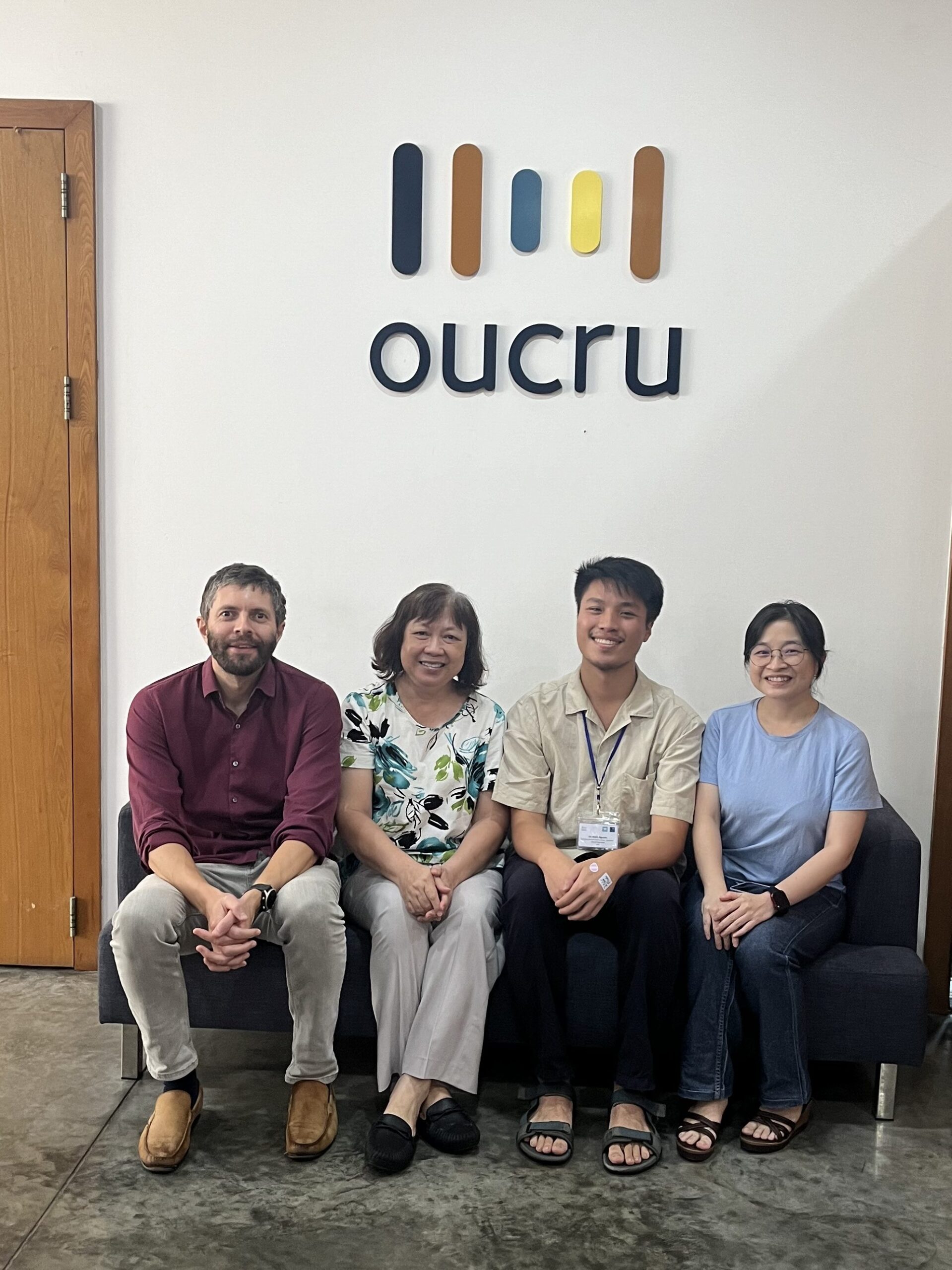
In the Pediatric ICU, I saw many children and infants suffering from dengue fever or tetanus, and I was fortunate to learn from Dr. Trieu and Dr. Yen, internationally recognized experts in these fields. September is peak mosquito season in Vietnam, and consequently also peak Dengue season. Due to limited healthcare access and resource constraints, many people in Vietnam remain unvaccinated against tetanus. Sadly, I witnessed several cases that could have been prevented by vaccination – including a ten-year-old boy who was bitten by a dog and later died from rabies.
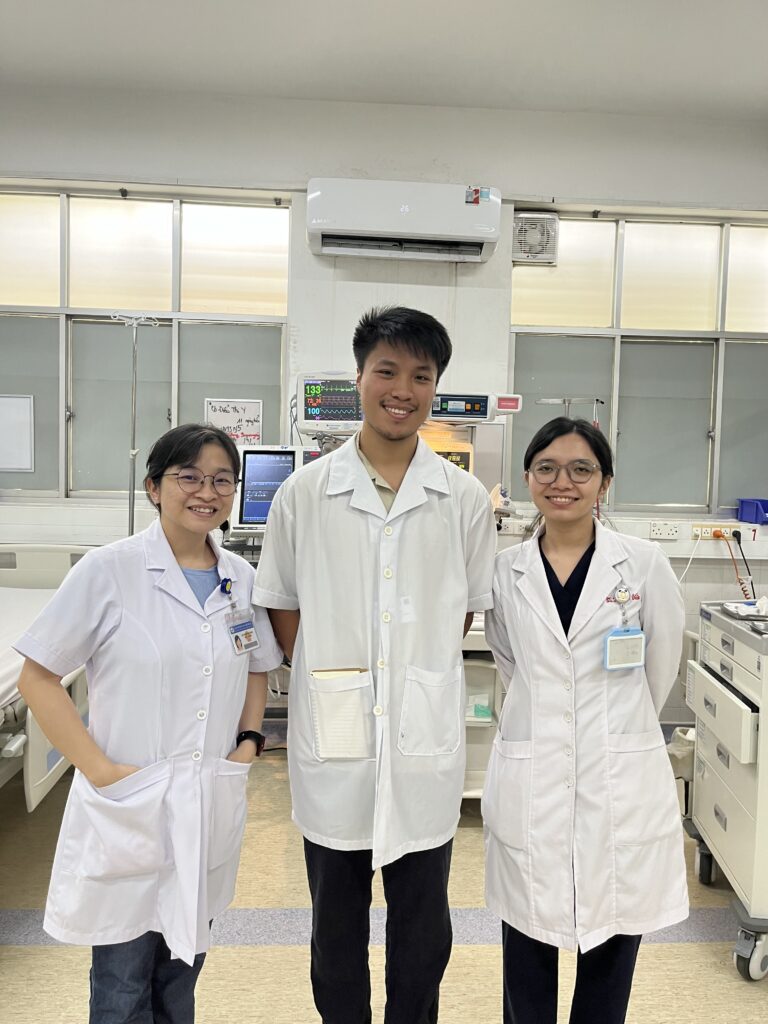
From patient care to clinical research and global impact
Witnessing these preventable tragedies reminded me how closely clinical medicine and public health are connected – and how essential research is in bridging that gap. At OUCRU, I was able to see this connection firsthand. Beyond providing clinical care, OUCRU conducts cutting-edge research directly on-site and actively engages in public health initiatives that aim to improve prevention, diagnosis, and treatment of infectious diseases across Vietnam and beyond. Once a week, I had the chance to participate in the academic meetings where researchers presented their latest findings and discussed ongoing studies. In addition, I had the opportunity to meet people from the Clinical Trials Unit, the Tuberculosis Research Group, as well as the Public Engagement and Social Science teams, to learn more about how OUCRU integrates research, community engagement, and education to create sustainable impact.
Through ward rounds, case discussions, and research meetings, I gained valuable insights into how clinical observations translate into research questions, and how research findings, in turn, can transform patient care. This interplay between bedside and bench – between local impact and global relevance – was one of the most inspiring aspects of my elective.
I highly recommend OUCRU to medical students interested in infectious diseases and tropical medicine – especially to those who want to gain a broader perspective on medicine and its role beyond the hospital setting.
Exploring the Vietnamese Culture and Cuisine
This was not my first time in Vietnam and I still have family there, so I might be a bit biased here, but Vietnamese food is the best. Saigon is a great city to try out all the different kinds of soups, Bahn Mi and other must-try Vietnamese dishes.
On the weekends, you can do trips to the Mekong Delta and the Cu Chi Tunnels. After my elective, I also visited Hoi An, Da Nang and Hue for the first time. While my Vietnamese was barely enough to get around, English is perfectly fine in these touristy cities. In the North of Vietnam, I can highly recommend Ha Noi and the Ha Long Bay.
Vietnamese people are usually very nice and welcoming and travelling in Saigon and to other cities is pretty easy. I was also lucky to witness the 80th anniversary of the independence of Vietnam as well as the famous Tet Trung Thu (moon festival).
An elective at OUCRU offers a great learning experience in, to me, one of the most fascinating countries in the world.



